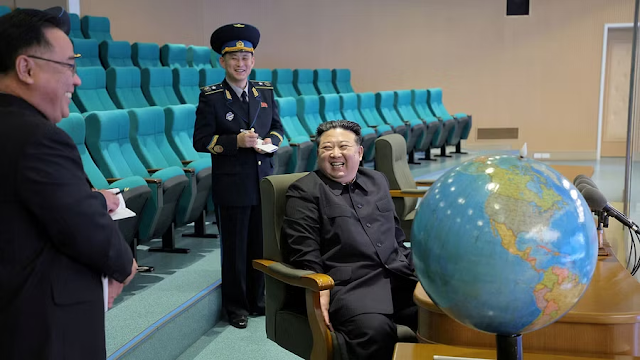North Korea Warns Against Satellite Interference, Labels it a Declaration of War
North Korea has issued a stern warning, declaring that any interference with its satellites would be considered a direct act of war. The announcement adds a new layer of tension to the already complex geopolitical landscape, raising concerns about the potential repercussions of such a declaration from the reclusive nation.
North Korea's emphasis on the sanctity of its satellites reflects the regime's commitment to maintaining control over its technological assets. In recent years, the country has invested heavily in space exploration, launching various satellites that it claims serve peaceful purposes, such as telecommunications and weather monitoring.
This declaration comes against a backdrop of historical animosities and international sanctions. North Korea has long been at odds with the global community over its nuclear ambitions and human rights record. The nation perceives external interference in its satellite operations as an infringement on its sovereign rights, a sentiment that aligns with its broader defiance of external pressures.
North Korea's pursuit of space technology has been a focal point of its national agenda, with leader Kim Jong-un championing advancements in science and technology. Despite economic challenges, the regime has allocated significant resources to develop its space program, signaling its determination to enhance its technological capabilities on the global stage.
The international community has expressed concern over North Korea's warning, emphasizing the importance of maintaining stability and peace in the region. Diplomatic channels are likely to be activated to address the escalating tensions and seek a resolution that avoids military confrontation.
The assertion that satellite interference would be treated as an act of war raises the stakes in an already volatile region. The potential consequences of such a declaration could have far-reaching effects, impacting regional stability and potentially triggering a broader conflict.
North Korea's declaration that interference with its satellites would be considered an act of war adds a new layer of complexity to the ongoing geopolitical dynamics. As the international community grapples with finding a diplomatic solution, the incident underscores the delicate balance required to maintain peace in the region while respecting the sovereignty and ambitions of nations, even those with a history of defying global norms.

.png)

Comments
Post a Comment